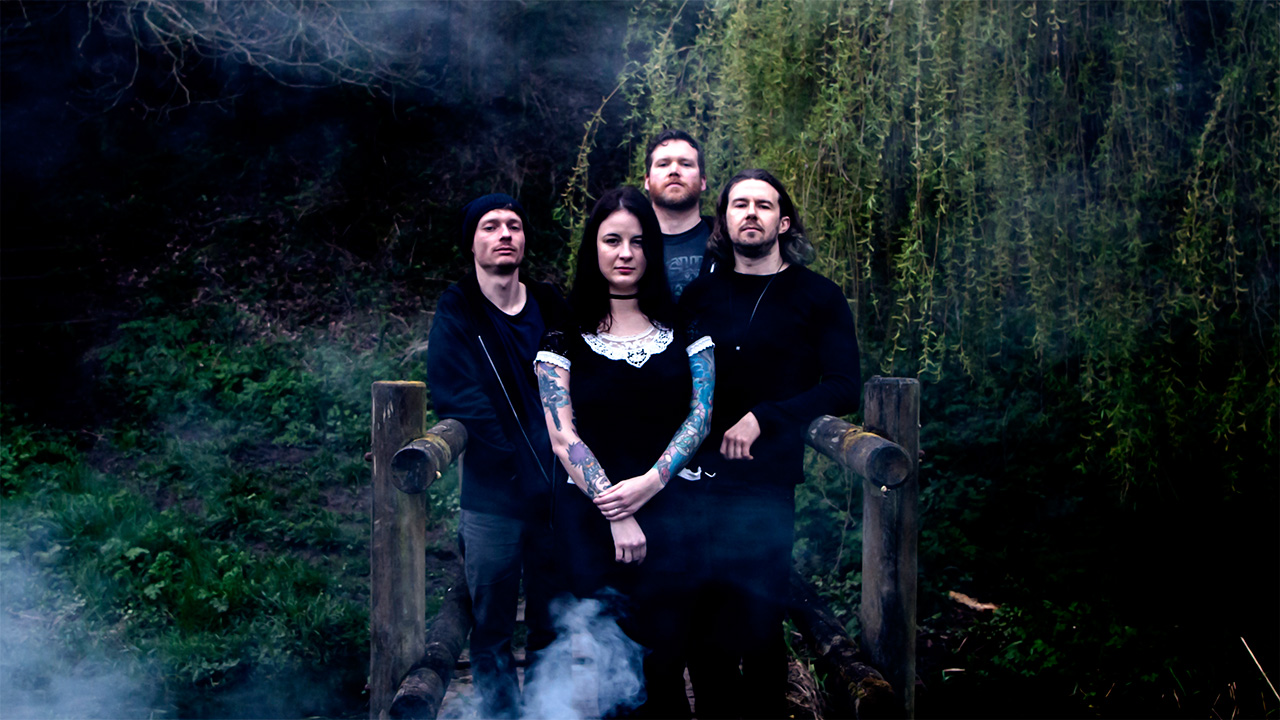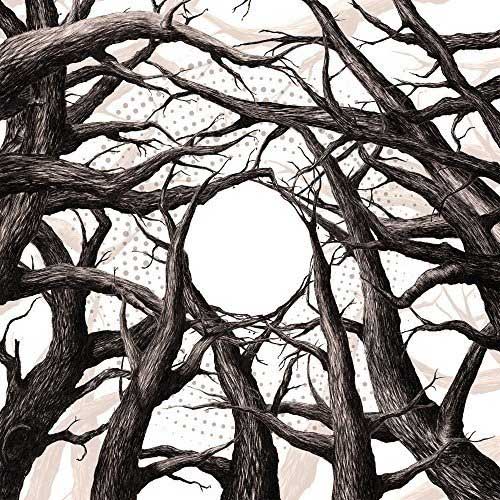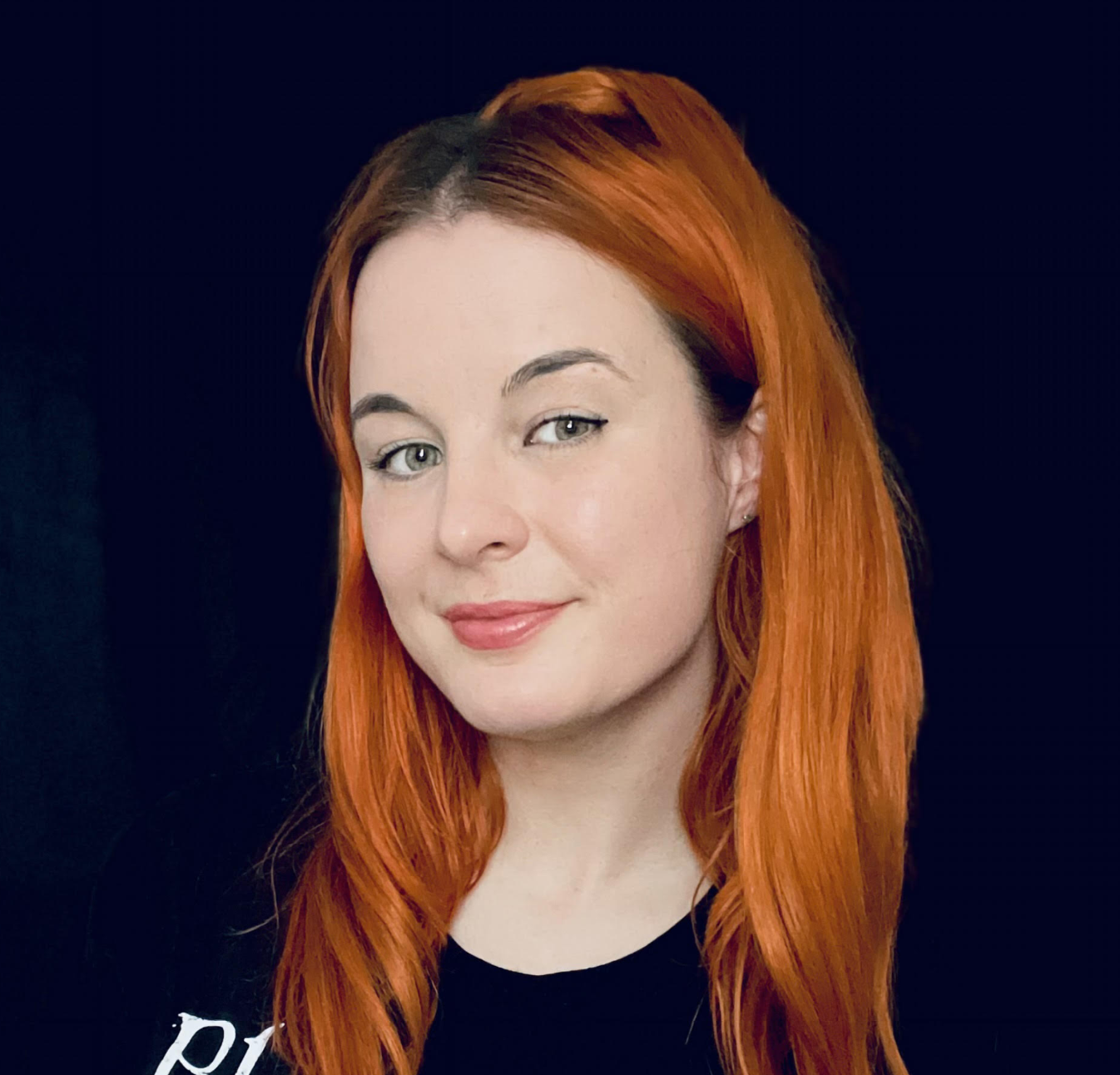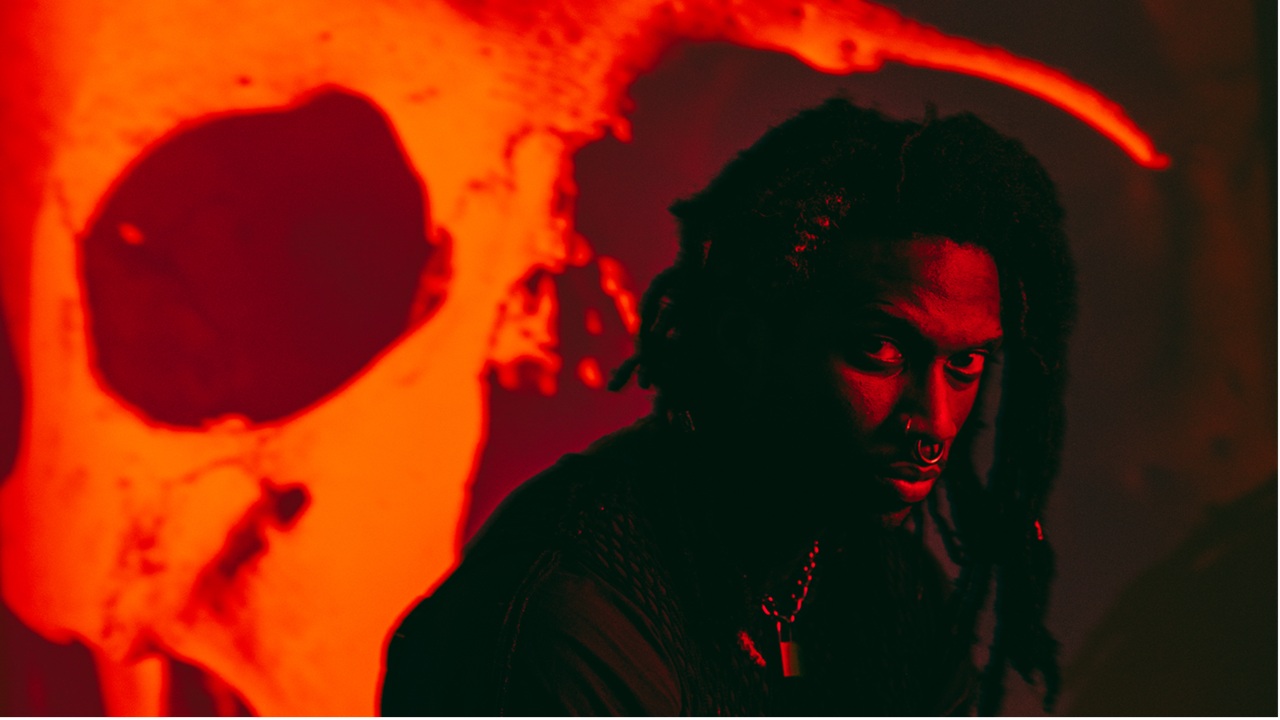Feminism, abortion and revenge porn: Inside Svalbard's new album
Svalbard vocalist Serena Cherry reveals the stories behind the songs on new album It's Hard To Have Hope

Select the newsletters you’d like to receive. Then, add your email to sign up.
You are now subscribed
Your newsletter sign-up was successful
Want to add more newsletters?

Every Friday
Louder
Louder’s weekly newsletter is jam-packed with the team’s personal highlights from the last seven days, including features, breaking news, reviews and tons of juicy exclusives from the world of alternative music.

Every Friday
Classic Rock
The Classic Rock newsletter is an essential read for the discerning rock fan. Every week we bring you the news, reviews and the very best features and interviews from our extensive archive. Written by rock fans for rock fans.

Every Friday
Metal Hammer
For the last four decades Metal Hammer has been the world’s greatest metal magazine. Created by metalheads for metalheads, ‘Hammer takes you behind the scenes, closer to the action, and nearer to the bands that you love the most.

Every Friday
Prog
The Prog newsletter brings you the very best of Prog Magazine and our website, every Friday. We'll deliver you the very latest news from the Prog universe, informative features and archive material from Prog’s impressive vault.
Svalbard's new album It's Hard To Have Hope is nothing short of intense. From the fire-breathing vocals to the punishing rhythm section to the graphic lyrical content, this is a passionate, unflinching, personal representation of human culture in 2018. Tales of sexual harassment, oppression and near-death experiences are just the tip of this vast, pitch-black iceberg.
Here, in an essay penned by Svalbard vocalist Serena Cherry, we dive into It's Hard To Have Hope one track at a time. And it ain't pretty.
Unpaid Intern
Have you ever felt a door of opportunity slam shut completely in your face? Not because of your work ethic, your habits, your intelligence… but simply because of your class background? Have you ever had all the right skills, enthusiasm and knowledge for a job role, but been refused the job simply because you can’t afford to work for free?
It sucks, doesn’t it. You are not privileged; therefore, you cannot access unpaid internships. But why does this matter? Do you really need to do an internship? Who wants to give hours and hours of free labour to an ungrateful company? You’re right not to be leaping at the, er, “chance.”
The trouble is, unpaid internships are still the predominant gateway to most jobs in desirable work sectors. That means, thanks to unpaid internships the middle class are filling up every creative/power position. They take the majority of political roles, journalist positions, jobs in the arts, positions in the music industry – because they can afford to work for free in these coveted areas.
When such representational favouritism occurs, it becomes necessary to ask, 'Where are the voices of the working class in these job sectors?' Well, you probably can’t hear them over the grinding halt of social mobility. God forbid a desirable job would go to an ‘undesirable’ person. The backwards, classist agenda of unpaid internships is what we are rallying against in this song.
Revenge Porn
There's a vulgar element of slut shaming within the concept of revenge porn. You trustingly sent nudes, therefore you must be embarrassingly punished? You must be publicly shamed? Therefore it's okay to have your dignity shattered by an intentionally private photo being shared around?
Sign up below to get the latest from Metal Hammer, plus exclusive special offers, direct to your inbox!
When it comes to revenge porn, why are we significantly less focused on blaming the people who are sharing private images? After all, sending nudes is not a crime – but distributing without consent is. While UK laws have recently been adapted to account for revenge porn as a criminal offence under the Sexual Harassment Act, currently very few people who share private photos suffer legal repercussions. In the age of online sharing, it can be tricky to pin down a specific perpetrator. Meanwhile, the reputation of every single victim of revenge porn lies in tatters. And don't get me started on the close-minded argument that 'If you don't want nudes shared, don't take them in the first place.' Talk about self-censoring out of fear! If you don't want your words twisted, don't say anything... ever? People who take nude photographs are NOT RESPONSIBLE for the actions of those who receive them. This song is about how we need to stop blaming the victims.
Feminazi
You know what we need to do, right? Every person who has ever campaigned for equal rights, every person who has fought against the patriarchy – we need to find a way of insulting them. We need to find a way of attributing feminism with a horrific dictatorship. We need to form a word that associates the progressiveness of feminism with a thoroughly despised, oppressive force. Got it! How about Feminazi? That’ll show ‘em. It will equate people standing up for their rights with being right-wing. It will paint feminism in the same nasty light as unbearable fascists. It will make people think twice before they proudly declare themselves feminists, right?
Wrong. You can’t put us off with these pathetic insults. Every time I take a stand on feminist issues I get called a Feminazi. This song is my reply to anyone who has ever used that disgustingly ignorant term.
Pro-Life?
My argument in this song concerns the Pro-Life movement who fight for the rights of unborn babies, but fight against the rights of women who are trapped with unwanted pregnancy. An accidentally pregnant woman’s life is a life too, you know. Yet bizarrely, Pro-Lifers want to protect some cells inside a womb, but not a woman whose life may be ruined by being forced to carry through an unwanted pregnancy. And they have the nerve to call it ‘pro life.’ Err, is the woman’s life not a life? Or should she and every other Eve shut up and suffer the pregnancy punishment of having sex in a God-fearing country?
What amazes me, is, ironically, the lack of consideration for the child. If a pregnant woman knows she can’t provide, knows she is not in the right space for the unyielding demands of motherhood – why should that child be forced to be born into knowingly difficult circumstances? It’s going to be a disadvantageous hell for all parties involved. Remind me again, whose life are you ‘pro’, exactly?
For The Sake Of The Breed
I can’t get my head around the breeding of brachycephalic animals. Purebred cats and dogs with faces so squashed they can barely breathe. How has that, in 2018, become a desirable attribute of a pet? How has unhealthy suddenly become ‘cute’? And why are people paying thousands of pounds for these knowingly problem-riddled purebreds when there are thousands of healthy dogs in shelters who will die if they do not get a home? What is it about the desperation of a dog in a shelter that makes it less ‘desirable?’ Moreover, what does it say about us – that we let healthy, happy, homeless mongrels die because we’re too fixated on giving business to private pet dealers who breed animals that can’t even breathe properly.
How Do We Stop It?
I was in tears when I recorded the vocals to this song. It’s an autobiographical account of getting sexually assaulted in the mosh pit at Wacken. It’s a topic that took me a while to summon the courage to address, because talking so transparently about sexual assault still carries an uncomfortable edge to it. Reliving the horror makes you feel ruined all over again. Part of you still feels weirdly ashamed, part of you worries that the listener will assume it was your fault. Years of victim shaming has taught us this, and it’s hard to unlearn those voices that inevitably dismiss your account as somehow ‘asking for it.’
But then I was inspired by Sam Carter from Architects calling out an incident he saw of sexual assault from the stage. He was using his power position, his platform, to take a stand against this very common occurrence of sexual assault at gigs. Maybe I could share my story… and that would mean something too? Maybe I could help raise awareness of this disappointingly common behaviour? I began researching other women’s accounts of sexual assault at rock gigs, I came across the feminist metalhead community Dear Darkness. They provide a platform and a safe space for people to share their stories, the experiences they bravely recalled made me feel significantly less alone. That’s when I realised the power of talking about traumatic things and felt strong enough to speak out about what I went through in this song.
Try Not To Die Until You're Dead
This is the most personal song on the album. What I’ve found quite interesting about it, is several people remarking that this song is about depression. It’s not specifically, but I guess when people see someone who appears able-bodied talk of illness, then they assume the illness is mental. It’s about an invisible illness that struck me last year, a parasite that forms cysts on stomach organs and systematically shuts them down, leaving permanent damage. To the untrained eye, I still looked perfectly normal, but I still get daily pain where I can’t stand up. While the lyrics could certainly be applied to describe depression; I’d say the message is more concerned with all invisible illnesses. From a bad back to colitis to hypothyroid to anxiety, it’s about the struggle of sudden debilitation due to health problems. It’s about suddenly having to fight very hard to keep on living, and feeling pathetically grateful for any morsel of support you receive when your life takes a turn for the worse.

Iorek
This instrumental song is very much the light at the end of the tunnel. It symbolises the moments when there are no words left, just relief in the joy that playing music together can provide. Through the rest of the record we, often pessimistically, address issues that make it hard for us to have hope, but this song acts as a final reminder that hope is always worth the fight in the end.

It's Hard To Have Hope is out now via Holy Roar Records and is available to order from Amazon.

Serena Cherry is the co-lead vocalist and guitarist with British post-hardcore band Svalbard. She also leads Noctule – a Skyrim-themed black metal band – and writes about music, video games and theme parks. She is endorsed by Jackson Guitars.
